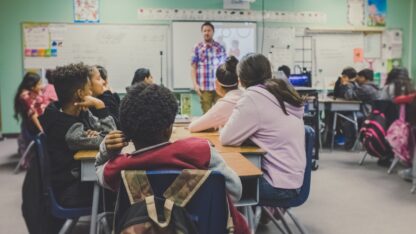Senate Appropriations Committee chairman Blake Tillery had a clear message for state superintendent Richard Woods following the education update of a recent meeting at the state capitol: Georgia’s youth literacy rates are scarily low.
“Knowing these numbers, I would expect–I would hope that there would be more people from the [Department of Education] beating down our doors with ideas,” he told Woods. “Bring us a plan… show us what you would do.”
According to the 2022-2023 statewide Georgia Milestones testing, only 39% of Georgia third graders were proficient or above in English language arts last year.
Though the Milestones also found that 66% of third graders were reading at or above grade level, the much lower proficiency statistic stayed top of mind at the capitol; Tillery was not the only one asking Superintendent Woods how the Department plans to address youth literacy.
But the Department has already started to answer that question.
Woods reminded lawmakers that the first step of changing course, making new learning standards, has been a long time coming.
“It has taken eight years just to get the votes so that I can adopt new standards,” Woods said to the officials.
Those new standards were enshrined in policy last summer when the state made new rules for teaching kids to read: House Bill 538 and Senate Bill 211.
H.B. 538 requires that schools center “structured literacy” in how they test students and train teachers.
Structured literacy is an evidence-based method of early reading instruction that draws from psychology and neuroscience. It also includes phonics instruction: putting letters together and sounding them out.
S.B. 211 established a Council on Literacy, including legislators, teachers, and a new director of literacy. Amy Denty was appointed to that role in May of 2023.
Denty says that school districts across the state have been working on literacy for a long time, but there has yet to be a “common language” for early literacy instruction in Georgia the way there is now.
“It feels like things are lined up, and if we take advantage of this momentum that we have, we can do great things for our students,” she said.
Denty added that the new laws make it easier to decide what things have to happen everywhere.
“We know a lot more now about how the brain learns to read,” she continued. “And we can use what we know to impact students.”
The Georgia Department of Education launched the Georgia Literacy Academy (GLA) in the fall. The GLA is a free online resource that trains teachers in evidence-based literacy instruction with courses developed by the Rollins Center for Language and Literacy.
In-person training has also started through what the Department calls “navigation cohorts.”
In 2024, the Department plans to double down on this training and professional development for educators across the state.









